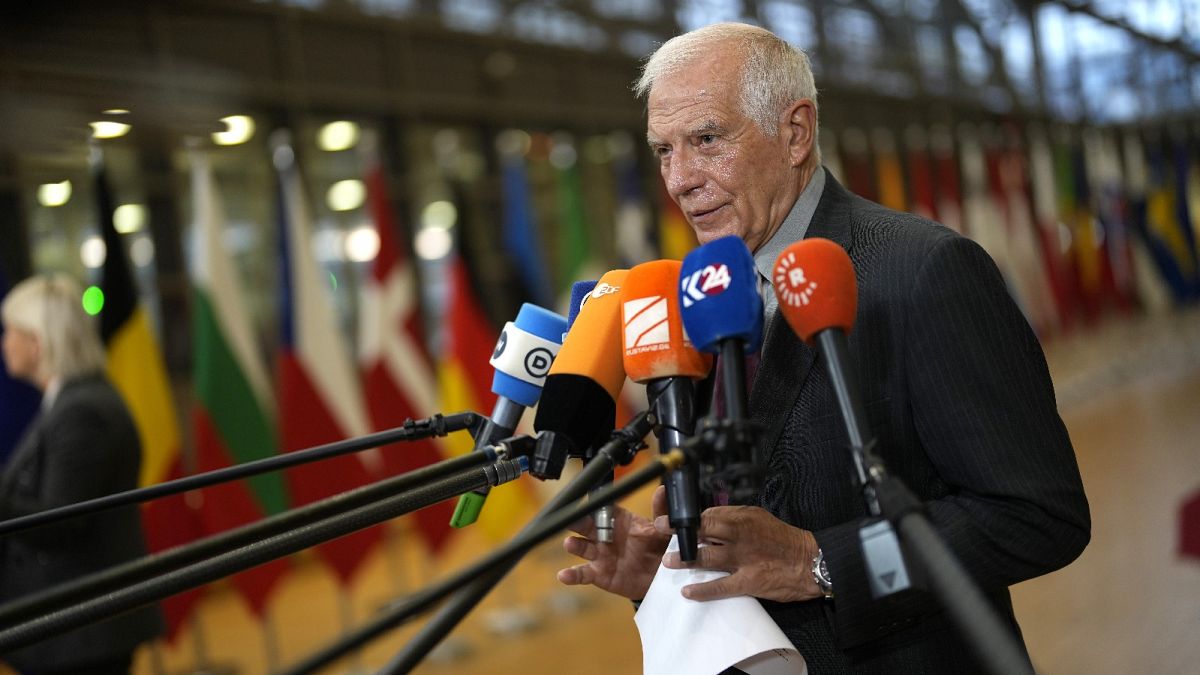One week ahead of a crucial meeting of European heads of state and government, divisions over the Israel-Hamas conflict are once again coming to the fore.
The polarisation of views on events in the Middle East is becoming so big that leaders representing the bloc are having to think twice about their words.
Earlier this week, members of an audience in front of the EU's foreign affairs chief, Josep Borrell, left the room during an NGO event after he said that Israel was creating carnage in the Gaza Strip.
"What we are witnessing in Gaza is another carnage. How many victims, we don't know. Nobody knows," Borrell told the audience in Brussels on Monday.
"Someone estimates it's about 15,000, but I am afraid that below the rubbles of the houses destroyed it must be many more, with a high number of children."
At this point, people began to exit the room, to which Borrell responded: "People are leaving the room? Why? Maybe I said something inconvenient."
Conservative MEP from the EPP group, Antonio López-Istúriz, said Borrell was biased and followed the political agenda of the socialist Spanish government.
He says that the EU's High Representative for Foreign Affairs went too far by accusing Israel of a massacre. In his opinion, the Jewish state respects international law.
"We have to wait for the European Council to see the positions of the different member states, and if we can arrive at a common position," the Spanish MEP said.
"That would be ideal. But in the meantime, there are different opinions, that is what the High Representative should reflect. Not only one side of the story."
Tensions among EU leaders became visible earlier when the Belgian and Spanish prime ministers visited the region and both criticised Israel for the suffering of Palestinians.
While Belgium and Spain have a traditionally more pro-Palestinian approach, Germany and Hungary are among the most pro-Israeli countries in the EU.
"Everyone in the European Union agrees, of course, that civilian casualties should be avoided in Gaza. I mean, this is something that is clearly mentioned among all capitals," Bruno Lété, a senior fellow at the German Marshall Fund of the US told Euronews.
"However, where we see divisions among member states is Israel's right to self-defence. Some of the EU member states are taking these arguments very seriously and are supporting Israel in this regard.
"But we see other EU member states that actually try to alleviate this right to self-defence by arguing that there should be proportionality and that the response of Israel is not proportional at all," he added.
The official EU position about the conflict is to stand in solidarity with Israel and support their right to self-defence but in accordance with international humanitarian law.
